Like the characters he has helped popularize on the big screen, Kevin Feige - the ballcap-loving Marvel Studios uber-producer with an innate sense of what audiences want and/or need - has followed his own hero's journey of sorts. He already defeated the big, bad Emperor of his story - former boss Ike Perlmutter. Along the way, he had several of his own Obi Wan figures, like Marvel Studios co-founder Avi Arad. Before he ever joined Marvel, however, there was a woman in a position of power who gave him his first big break.
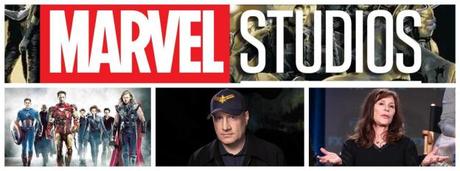
Given the completely unprecedented and industry-altering success of the Marvel Cinematic Universe, countless deserving and perhaps some undeserving individuals have begged for their own round of applause for whatever role - minor or major - they played in making it all happen. A couple of years ago, for example, producer David Maisel stepped forward to demand such applause, reminding the world he was the actual financial brains behind the creation of Marvel Studios. I wrote about that already, and he has a point.
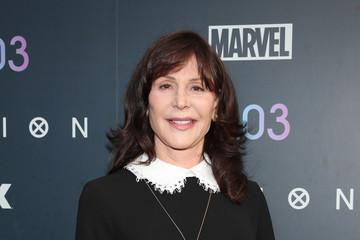
Lauren Shuler Donner, by contrast, isn't asking for our applause. A movie producer with credits as far back as the late 1970s, Donner's connection to the MCU is tenuous, at best. However, if we think of it in Joseph Campbell terms she was the invaluable mentor on Kevin Feige's hero's journey - the Obi Wan to his Luke. She's the one who chose to actually listen when her fresh-out-of-film-school assistant dared to speak up. If she hadn't, things could have gone very differently.

The year? 1997.
The place? The Warner Bros. lot.
Why am I suddenly talking like an old film noir narrator? No idea.
Lauren Shuler Donner - yes, Richard " Superman" Donner's wife - had a production company based on the WB lot. She was still riding a wave of success kicked off by her one-two punch of Dave and Free Willy several years earlier. Her development slate included projects like Volcano, You've Got Mail, Any Given Sunday, and a little thing called X-Men. That last one was making everyone nervous, and that was BEFORE Batman & Robin came along to pun the comic book genre into potential oblivion.

As Donner's production assistant, Kevin Feige had a front row seat to all of this. A movie-loving native of Westfield, New Jersey who had moved to Los Angeles to attend USC's film school, Feige scored the job just two years after graduating. He was only 24 and everything he knew about comic books came from the movies and TV shows. Contrary to what we might assume about him, Feige was not actually a lifelong comic book fan steeped in all of the arcane mythologies.
Taking the initiative when "the initiative" means becoming a comic book superfan"I knew Superman. I knew Batman. I knew Spider-Man from cartoons. I knew Hulk from the old TV series," Feige recently told TIME. "All of my deep-diving of comics in my adulthood was based on, How could this fit into a feature? How could I fit this frame, this line, this theme, this story into the structure of a feature film?"
That would come later, though. As a fresh-faced 24-year-old, Feige was still dazzled by the Hollywood dream factory. While he assisted Shuler on Volcano, Joel Schumacher and crew were filming Batman & Robin just across the way. Like any self-respecting 24-year-old nerd, he made damn sure to walk over and sneak a peek at the set of the new Batman movie. telling TIME, "I remember seeing the Gotham City backlot, Batmobile chase and things like that. It was always very exciting that that was happening."
Batman & Robin puts the superhero genre on - wait for it - iceVolcano came out in April 1997 and promptly bombed.
Oh, well. You can't win them all.
Batman & Robin came out almost exactly two months later and poisoned the superhero movie well for years to come.
Oh, shit! What does this mean for X-Men?
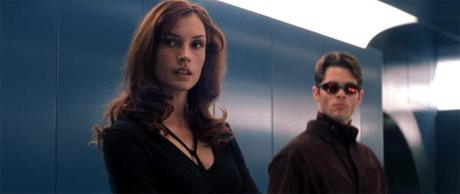
"It was kind of like, 'Well, that's the end of that,' in terms of movies based on comic books," Feige recalls thinking at the time.
However, in a move which would come to define his career, Feige grew to look at Batman & Robin's failure as a learning opportunity. Rather than lament what its critical and fan reception meant for the industry, why not figure out how exactly Batman & Robin went so wrong and apply those lessons to X-Men?
His big, albeit obvious takeaway: nobody who worked on Batman & Robin seemed remotely interested in the comic books or the hardcore fans. They just wanted to sell toys.
Ironically, Feige would later work for a boss at Marvel Studios - Ike Perlmutter - who was basically a toy manufacturer only interested in funding superhero movies if they succeeded in moving product off shelves. (Iron Man, for example, was picked to be the MCU's first movie because a focus group indicated his toy is the one kids would want the most.) So, it's a fight Feige would come to know all too well.
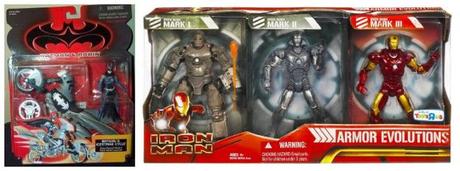 What Donner saw in the X-Men
What Donner saw in the X-Men Not while working for Donner, though. Like him, she simply wanted to make the best X-Men movie possible. She'd picked up the X-Men film rights three years earlier based on the strength of X-Men: The Animated Series, and even after Batman & Robin she remained determined to bring Wolverine to the screen. As she recently told Decider:
"The first [X-Men comic book] I read was Logan. In order to have a successful movie you have to follow a character you want. Logan was such a compelling antihero: complex, an uncontrollable resurrection, somebody tampered with his body, unrequited love with Jean Grey, everything. There's so much that made me want to see him on the screen and reading all the rest. That's why I like superhero movies, number one. Number two: The reason I love X-Men in particular is that there are so many badass women. There's so many powerful superhero X-Women, and it is sort of evenly weighted. And that as a woman, obviously [that] drew me to it."
X-Men remained in development, and Shuler rebounded from Volcano with You've Got Mail, a modestly-budgeted Tom Hanks-Meg Ryan rom-com which went down as the second highest-grossing PG film of 1998, trailing only The Truman Show. With that kind of hit newly under her belt, Shuler's X-Men couldn't be dismissed.
Lauren lets Kevin sit in on a meetingMuch as he did with Volcano, Feige enjoyed working on You've Got Mail, but he was still searching for a way to stand out and move up the ladder. "I was looking for something that I could grow with and be more additive to and more helpful with," he recalls.
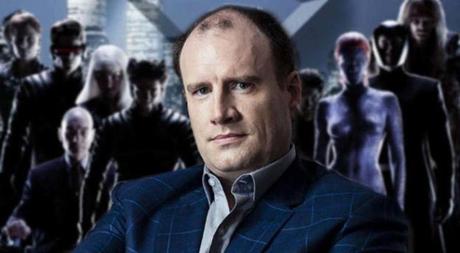
So, he took the initiative to turn himself into an X-Men super fan by reading all of the major comic book runs. That allowed him to do this:
"I started writing notes on the early drafts of X-Men that came in, and because Lauren is an amazing mentor and is so gracious, she would read the notes. Eventually, she started saying, 'Hey, come into the office and sit with me.' I would be sitting with Tom DeSanto, who's the producer of X-Men, and Bryan Singer, who was the newly-hired director, and I just started to become a part of that creative team."
"He helped us make sure that we took the right path," Donner told Variety for its recent profile of Feige, "so that we remained true to the comic while having the freedom to transform the story into a different medium."
Along with Feige's new responsibilities came a new job title: production executive. Or, to put it another way, resident nerd. "I would just start digging even further into the comics and go, 'Well, look at this. There's a lot of great stuff here.' I would raise a red flag, like with Wolverine's hair on the first couple of days of production. It didn't feel like Wolverine's hair [from the comics.]"
Of course, Feige wasn't the only resident X-Men fanboy on the production. For example, an administrative worker/aspiring writer who was hired to answer phones proved to be such a helpful superfan that he ended up rewriting the entire script and earning sole credit for the finished product. However, Feige is the one who most impressed Marvel Studios president Avi Arad.
Poached by another studioFor years, Stan Lee had tried and mostly failed to get Hollywood to take Marvel seriously. Once the studios actually had the film rights, however, Marvel could mostly just standby and watch, their notes often going ignored. Feige was the first Hollywood executive who seemed to speak Marvel's language, a crucial find since Arad had grand plans for a series of X-Men movies. Because of that, Arad hired him away from Shuler to become Marvel Studios' main representative in Los Angeles. ( The rest of that story has been written elsewhere on the site.)
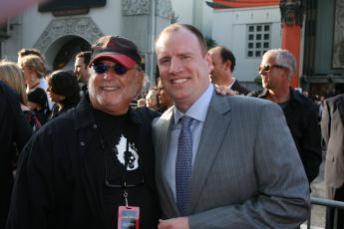
Though this marked the end of Shuler and Feige's boss-employee relationship, they would again interact on the X-Men sequels, just from opposite sides of the aisle. Moreover, they have each hitched their career wagons to superhero movies ever since. She has seen the X-Men franchise through its various ups and downs, and Feige has...well, you know.
Shuler could have ignored his notes all those years ago. She didn't have to invite him to sit in on meetings. Instead, she opened the door for a young, ambitious assistant-turned-executive. Who knew he would go on to completely remake Hollywood?
Everything comes full circleThanks to Disney's purchase of Fox, the student is about to replace the master. Shuler - who long ago gave up day-to-day management of the X-Men universe to Simon Kinberg - is about to be replaced entirely. All of the plans she had - such as a potential all-female team-up X-Men movie - are likely off the table. What happens next is up to Feige.
Reflecting on the end of all this and uncertain next steps, Donner sounds sanguine, recently telling Decider, "[Feige]'s got all of his Marvel worlds, now he's got the X-Men world. I trust Kevin to be very smart about it, and to weave them in judiciously."
She does have one last bit of advice for her old assistant, though: "Don't flood the theaters with too many superhero movies."
Sources: TIME's The World of Marvel interview with Kevin Feige,, Variety
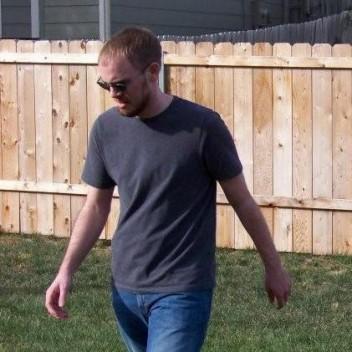
Grew up obsessing over movies and TV shows. Worked in a video store. Minored in film at college because my college didn't offer a film major. Worked in academia for a while. Have been freelance writing and running this blog since 2013. View all posts by Kelly Konda

